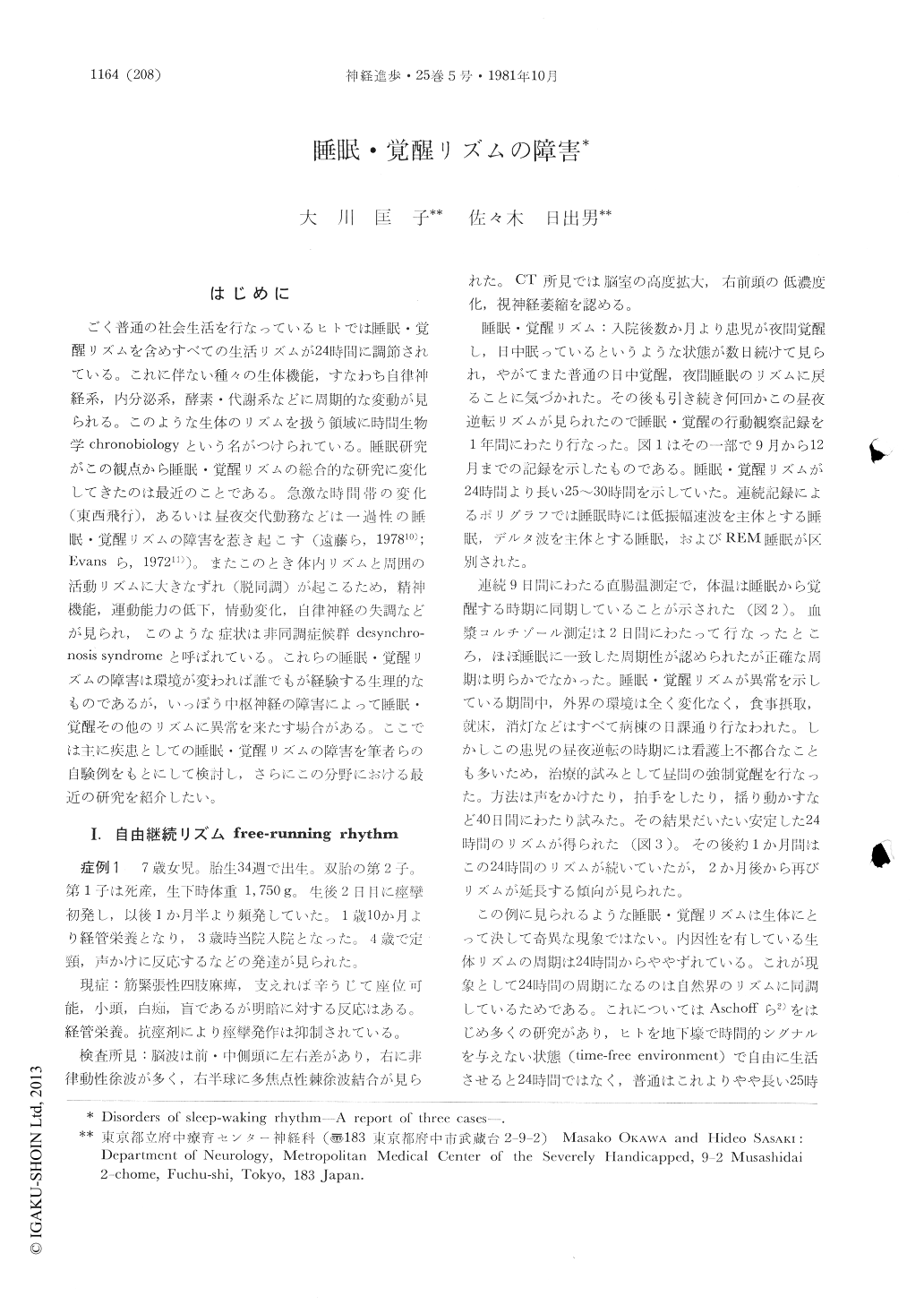Japanese
English
- 有料閲覧
- Abstract 文献概要
- 1ページ目 Look Inside
はじめに
ごく普通の社会生活を行なっているヒトでは睡眠・覚醒リズムを含めすべての生活リズムが24時間に調節されている。これに伴ない種々の生体機能,すなわち自律神経系,内分泌系,酵素・代謝系などに周期的な変動が見られる。このような生体のリズムを扱う領域に時間生物学chronobiologyという名がつけられている。睡眠研究がこの観点から睡眠・覚醒リズムの総合的な研究に変化してきたのは最近のことである。急激な時間帯の変化(東西飛行),あるいは昼夜交代勤務などは一過性の睡眠・覚醒リズムの障害を惹き起こす(遠藤ら,197810);Evansら,197211))。またこのとき体内リズムと周囲の活動リズムに大きなずれ(脱同調)が起こるため,精神機能,運動能力の低下,情動変化,自律神経の失調などが見られ,このような症状は非同調症候群desynchronosis syndromeと呼ばれている。これらの睡眠・覚醒リズムの障害は環境が変われば誰でもが経験する生理的なものであるが,いっぽう中枢神経の障害によって睡眠・覚醒その他のリズムに異常を来たす場合がある。ここでは主に疾患としての睡眠・覚醒リズムの障害を筆者らの自験例をもとにして検討し,さらにこの分野における最近の研究を紹介したい。
A sudden longitudinal transition or a sudden phase shift of the day-night rhythm causes transient sleep disorders, autonomic dysfunctions and emotional disturbances. These conditions which are observed in normal subjects are aftributed to desynchronization of the internal biological rhythm with the external clock. This phenomenon is called "desynchronosis syndrome".
Patients with disorders in the central nervous system (CNS) sometimes show this syndrome in the sleep-waking cycle or other biological rhythms. In this paper three types of sleep-waking rhythm disorders are presented.

Copyright © 1981, Igaku-Shoin Ltd. All rights reserved.


